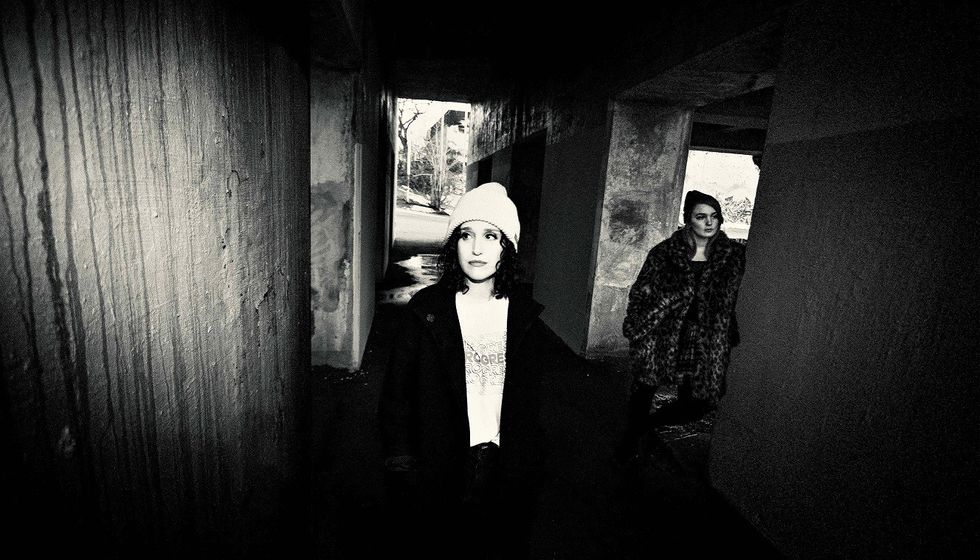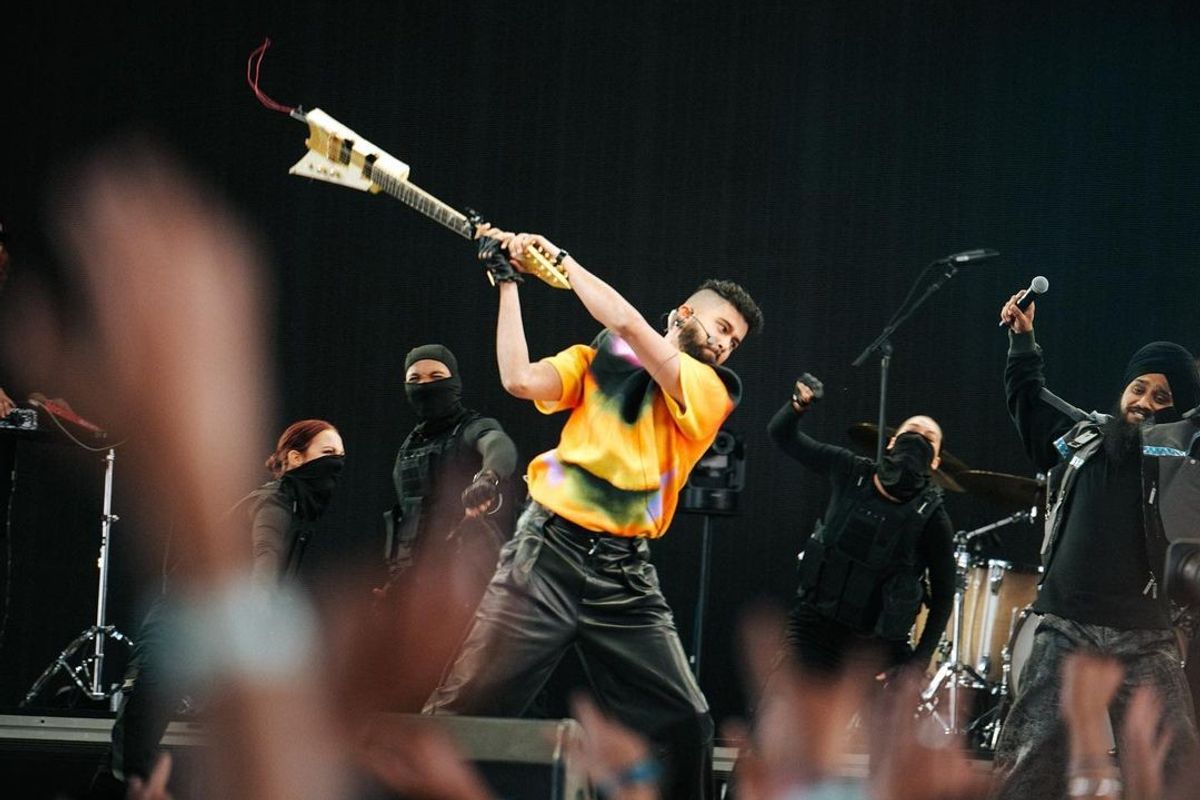Steph Copeland: Charting Her Identity In Music
With beginnings as a singer-songwriter and electro-pop producer in Windsor/Detroit, Steph Copeland’s foray into screen composing be

By FYI Staff
With beginnings as a singer-songwriter and electro-pop producer in Windsor/Detroit, Steph Copeland’s foray into screen composing began in 2012 with an electronic score for indie horror feature film Antisocial. Now based in Toronto, the artist/composer has since scored 35 features, series and shorts including Citytv’s The Wedding Planners. She’s produced and conducted orchestral ensembles for the SOCAN Awards and TIFF Gala. But keeping true to her songwriting roots, Copeland continues to release albums and songs which have seen placements in series' such as Netflix’s Tiny Pretty Things, L.A.'s Finest, and UnREAL. Her most recent release, Gas Light, is a collaborative effort with violinist Brigit O’Regan. The music video, directed by Sean McLeod (City and Colour, Matthew Good) stars dancer/choreographer Murphy. Gas Light as follows:
Tell us a bit about your background and what it was that led you to become a composer?
I was always supported in music by my family. My dad could sing and had an extensive classical music collection. Some early memories are listening to Tchaikovsky and conducting my barbies while growing up in the country outside Wallaceburg, ON. As a kid my mom put me in singing lessons, then later a youth choir and singing camp. I picked up the guitar at 15 and started writing songs. Dad had found a local recording studio where I created my first acoustic EP of originals.
From there I started collecting gear, drum machines and synths. The migration from producing and songwriting to composing for the screen came fairly organically. Before moving to Toronto in 2011, I was living in Windsor, playing live shows weekly and recording homemade indie albums to sell side stage, but I wanted to change things up. I had been getting more experimental in my sound and wanted to dive deeper into recording and producing when the opportunity came along to do an electronic score for an indie horror that had next to no budget for music. It was a bit of "sink or swim" scenario having no experience writing to picture. After I got up to speed on some basic technical aspects (like using time code, spotting and what to deliver to the mixer) I was hooked.
What have you been composing for in the past year or two?
It’s been a busy and exciting couple of years with a fairly diverse mix of thriller/horror, romantic drama and commercials. In 2020, I worked with Cody Calahan and Black Fawn Films to score crime drama The Oak Room starring RJ Mitte. Then we did a fun ‘80s retro synth-rock score for Calahan’s horror/comedy Vicious Fun, currently doing the festival circuit. Then I shifted to a much lighter mood co-scoring Citytv’s The Wedding Planners (Brain Powers Studios) with composer and good pal Sean Nimmons-Paterson. More recently I created a hybrid electro-orchestral score for the horror film, The Retreat (Clique Pictures, Outside Line) and a juicy suspense drama with Neshama Entertainment.
How do you compose: while you are walking, on an instrument or do ideas formulate in your mind first?
If it’s for a score I’ll review the film or show thoroughly before I get started. Then I will have conversations with the producers about what the sound and style and sometimes instruments will be. I’ll check out a tonne of references and start to tool up with instruments to set the tone. Once we know what direction we are going in, and what themes will be established, I’ll pull up an instrument and start noodling. That’s where melodies and motifs emerge a lot of times. Other times, I’ll be watching through - hum a melody and do a voice memo. It depends on where I’m at in the process. When I’m songwriting it usually starts with a melodic vocal phrase - and it can happen while unloading the dishwasher or something. There are a lot of voice memos involved.
When you compose a score for TV and film, is it fully orchestrated, and if so, how do you do that?
Nowadays, there are some pretty powerful software synths and sound libraries (that allow you to play any instrument on a midi keyboard) with instrument samples. If it’s an orchestral score I’ll do a lot of writing using the sample libraries. If the budget permits - that's when things get interesting, and I have the privilege of bringing in live musicians.
Most often I end up producing a hybrid using both the orchestral sound libraries and live players. The inception for our new single Gas Light took place after a recording session with violinist Brigit O’Regan for a film. Brigit is a superb improvisational writer and can play by ear, which is amazing because when deadlines are looming you don’t always have a chance to put pen to paper for a written score.
You are also a performing artist, but you’ve had to let this outlet take a back seat to your compositional work. Is this frustrating or is the studio now your stage?
I’ve been really fortunate to maintain my passion for songwriting within the projects I’m scoring. A lot of the times productions will commission songs specific to the film. For The Oak Room, co-writer Chris Wong and I wrote Love Didn’t Care For Me, which plays over the final scene of the film. It’s a great scenario that allows me to keep releasing new music while expanding and evolving.
What is your dream?
This is my “If I won the lottery answer”: To have a much bigger space, an unlimited amount of gear, instruments, and funds to hire talented players to record and collaborate with. As it stands, I don’t feel terribly limited by my tools. I can usually get what I want from them without sacrificing much creatively, but the dream is definitely unlimited creative experimentation - and for that you need space. Toronto is so expensive.
Which composers or artists do you admire?
The work of Trent Reznor and Atticus Ross definitely speaks to me in terms of style, mood, instrumentation and overall aesthetic. Their soundtracks for The Watchmen (series), Gone Girl and Girl with the Dragon Tattoo have likely had influence on my I’m writing for some genre film scores. Hans Zimmer and Benjamin Wallfisch’s score for Bladerunner 2049 and Johan Johansson’s Mandy also had a pretty strong impact.

















